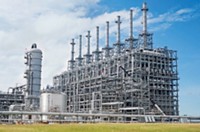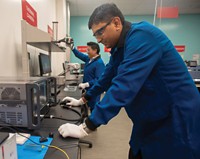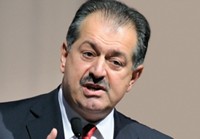Advertisement
Grab your lab coat. Let's get started
Welcome!
Welcome!
Create an account below to get 6 C&EN articles per month, receive newsletters and more - all free.
It seems this is your first time logging in online. Please enter the following information to continue.
As an ACS member you automatically get access to this site. All we need is few more details to create your reading experience.
Not you? Sign in with a different account.
Not you? Sign in with a different account.
ERROR 1
ERROR 1
ERROR 2
ERROR 2
ERROR 2
ERROR 2
ERROR 2
Password and Confirm password must match.
If you have an ACS member number, please enter it here so we can link this account to your membership. (optional)
ERROR 2
ACS values your privacy. By submitting your information, you are gaining access to C&EN and subscribing to our weekly newsletter. We use the information you provide to make your reading experience better, and we will never sell your data to third party members.
Investment
DowDuPont CEO favors short-term R&D
Ed Breen wants to avoid the uncertainty and expense of “moonshot” projects
by Alex Tullo
June 4, 2018

DowDuPont CEO Ed Breen says he prefers small, short-term R&D projects that quickly yield marketable products to “moonshots” that are risky and more expensive.
Breen took over as DuPont CEO in November, 2015, and quickly inked an agreement to merge with Dow Chemical. At the Bernstein Strategic Decisions Conference in New York City on May 31, Breen discussed his company’s R&D strategy.
Breen said that he looked to scale back ambitious projects as soon as he was put in charge at DuPont. “When I got to the company, we killed almost all of the moonshot projects,” he said. “And, by the way, the moonshots cost money. I didn’t feel comfortable with most of them.”
He cited DuPont’s $200 million cellulosic ethanol plant in Nevada, Iowa, as an example. The plant, meant to process agricultural residues from local farmers, opened in October, 2015. The company closed the plant last year and has since been trying to sell it.
Additionally, in late, 2015 Breen recast DuPont’s Central R&D organization, famous in the chemical industry for its devotion to long-term projects, into a smaller organization, Science & Innovation.
At the conference, Breen said the company is now taking on R&D projects that cost between $10 million to $30 million, which he said were less risky and yield profits sooner than larger initiatives. He said DowDuPont rolled out 20% more new products in 2017 than it did in 2016. This year, he expects new launches to increase another 25%.
“We have gone to a very disciplined look at our innovation pipeline,” Breen said.
The philosophy is also translating to capital projects. Breen told the audience that now that a few large petrochemical projects are completed—including the massive Sadara joint venture in Saudi Arabia with Saudi Aramco and its new cracker in Freeport, Texas—the company will emphasize smaller expansions at existing facilities.





Join the conversation
Contact the reporter
Submit a Letter to the Editor for publication
Engage with us on Twitter